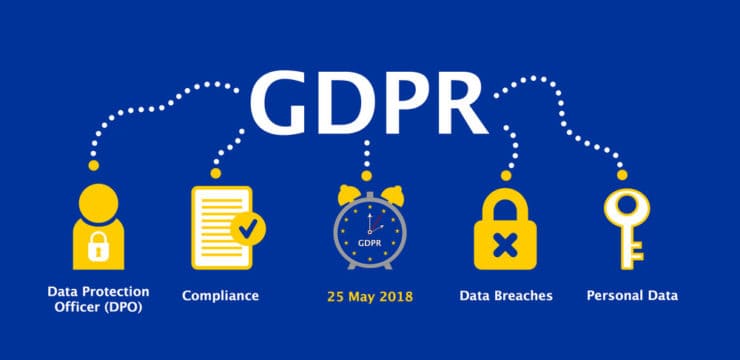With the dramatic development of digital technologies, delivery management became one of the most critical aspects of the functional efficiency of any e-commerce 🛒 and logistics business. Companies face the challenge of delivering products quickly, accurately, and at the same time transparently.
Moreover, they need to reduce costs and improve customer service. That’s why web-based delivery management solutions are becoming increasingly important. Especially in the global supply chain. 🚚📦

Web-Based Solutions In Logistics. What Is It?
The main idea behind implementing web-based delivery management solutions is as follows. It is the use of digital platforms for:
- automation,
- centralization,
- optimization of the delivery process.
Thanks to the above, you can not only minimize the human factor, but also improve:
- analytics,
- routing,
- interaction with end users.
Web delivery tools include a number of features. In particular,
- Real-time monitoring,
- Courier management,
- Automatic route creation,
- Reporting,
- Integration with CRM and e-commerce platforms,
- Delivery experience management. Systems that help create a pleasant delivery experience for the customer.
Successful solutions role in digital delivery transformation
When companies seek to integrate software delivery management, they face the need for solutions that can be easily implemented and scaled. One of such solutions is the Packy service. It allows you to track hundreds of email services in real time. With the help of packyapp.com, users can centralize delivery management, regardless of the number of carriers. The intuitive interface, mobile support, and flexible integration options make PackyApp useful for companies of all sizes. This is especially true for delivery management tools focused on scalability and simplicity.

Delivery Management. Types of Software for It
- Delivery management software. What is it?
- Courier software for small business
- Delivery scheduling software for small business
❓ What is delivery management software?
This software allows businesses to automate their delivery processes. From receiving an order to handing it over to the customer. Thanks to its flexible architecture, delivery management software can adapt to the needs of everyone. This includes retailers, distributors, courier services, catering establishments, and e-commerce platforms.
Courier software for small business
Small businesses usually don’t have the budget for complex ERP systems. So, they rely on courier software for small business. The latter include basic but powerful features. We are talking about:
- routing,
- scheduling,
- push notifications,
- reporting,
- integration with CRM.
This allows you to minimize costs and increase delivery efficiency.
Delivery scheduling software for small business
Delivery scheduling software ensures accurate planning of delivery schedules, avoiding delays, duplications, and conflicts. Small businesses benefit from:
- simple visual management,
- integration with mobile applications,
- API support for customization.
Web-Based Platforms. Their Advantages
- Real control. Analytics
- Increased customer satisfaction
- Reduced costs
📈Real control. Analytics
With the help of modern delivery management tools, businesses can monitor every stage of delivery in real time. Thanks to ecommerce logistics software, you can not only see where the cargo is, but also analyze the efficiency of each courier, identify bottlenecks, and make data-driven decisions.
💯Increase customer satisfaction
A key part of delivery experience management is creating a pleasant and predictable experience for the end user. Transparent tracking. SMS notifications. Flexible choice of delivery time. All of the above is made possible by digital platforms. This is especially important in a competitive ecommerce delivery management environment. Here, even minor delays can cost you a customer.
💵Reduce costs
Effective delivery management software does the following.
- Reduces the need for manual management.
- Reduces the number of errors.
- Optimizes costs for fuel, personnel, and logistics operations.
Such systems can automatically select the most cost-effective routes and predict delays.
Practical Usage
- Restaurants. Food delivery services
- Retail. E-commerce
🍽️Restaurants. Food delivery services
The HoReCa industry is especially dependent on the delivery speed. In this context, food delivery management software is critical. Some help restaurants to integrate online orders with courier services, reducing the time of preparation and delivery. And also, optimizing the workload on staff.

📦Retail. E-commerce
In e-commerce, companies usually integrate ecommerce logistics software with Shopify, WooCommerce, or Magento platforms. This ensures a continuous flow of information between points of sale, warehouses, and delivery. Thus, increasing operational efficiency and customer satisfaction.
Innovations. The Future of the Market. How to Choose the Right Solution

- Integration with IoT and AI
- Automation. Self-delivery
- How to choose the right solution?
Integration with IoT and AI
New generations of delivery management software are increasingly integrating IoT devices that transmit data on humidity, temperature, geo-position, etc.
At the same time, AI algorithms analyze this data to improve forecasting accuracy, plan routes, and adapt to unpredictable conditions.
Automation. Self-driving delivery
Many companies are testing UAVs, drones, and self-driving vehicles as part of their web delivery infrastructures. Although this technology can still be considered in its infancy, it promises to revolutionize logistics by reducing time and costs.

How to choose the right one?
When choosing a software delivery management platform, consider the following criteria.
- Scalability – Can the software be used for both small and large delivery volumes?
- Integration – Does the service communicate with your CRM, CMS, or other software?
- Flexibility – Can you customize the interface to meet your business needs?
- Support – Is technical support available 24/7?
Data Security. Privacy in Web-based Delivery Solutions
Whether it’s courier software for small businesses or a scalable ecommerce delivery management platform, there’s always something at stake:
- confidential customer information,
- internal logistics routes,
- analytical reports.
Modern web delivery solutions must provide:
- Encryption of traffic between the server and the user (via SSL/TLS),
- Data backup in the cloud and on secure servers,
- Access control to different levels of data depending on the role of the employee,
- Compliance with international standards. GDPR, SOC 2, or ISO/IEC 27001.

Data storage requires special attention in the areas of food delivery management software or when working with large marketplaces. Here, not only personal information of the user is processed, but also details of payment transactions, geolocation, and purchase history.
Summary
Nowadays, we cannot imagine modern business without high-tech solutions. After all, the latter ensures fast, reliable, and transparent delivery. Web-based delivery management software is already a strategic necessity. Thanks to the mentioned methods, companies of all sizes can create a unique customer experience and cut costs at the same time. And also, increase efficiency. Investing in delivery management tools is an investment not just in technology, but in service efficiency and customer trust. And thus, in a competitive advantage in the digital transformation era.